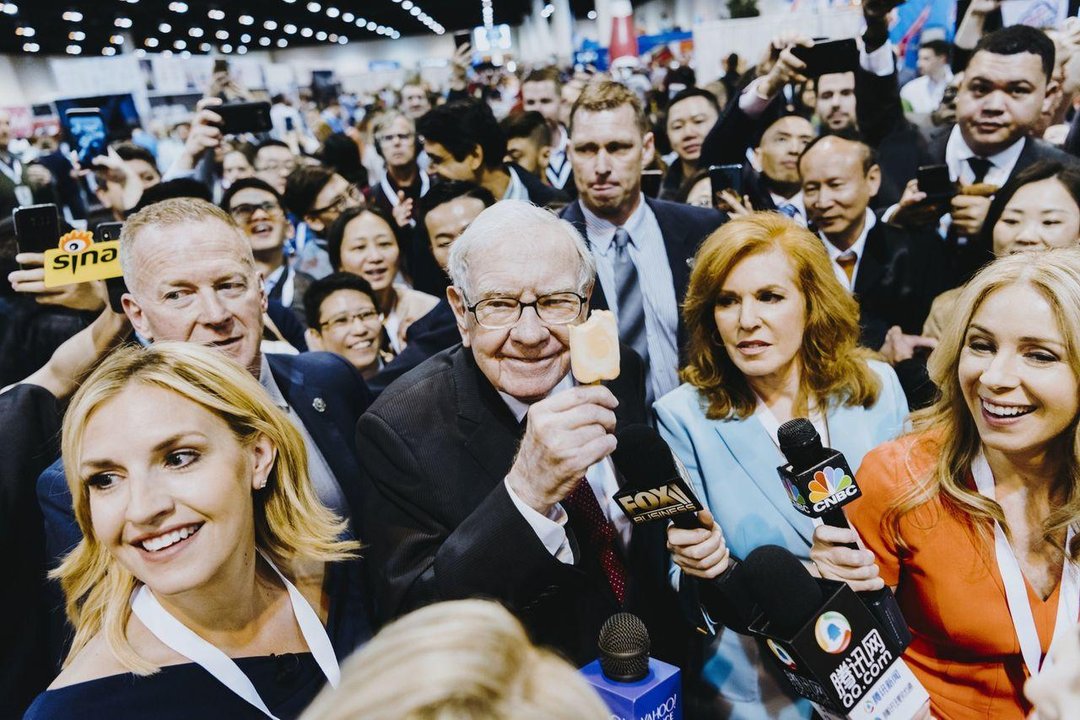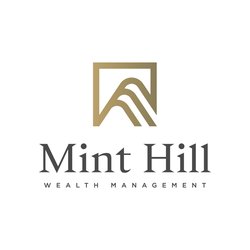
By Karen Langley
Feb. 26, 2024
Warren Buffett had an audience in mind for his latest letter to shareholders: his sister Bertie.
Together with Buffett’s tribute to his late partner, Charlie Munger, the Berkshire Hathaway chairman and chief executive’s references to his sister gave Saturday’s letter a familiar tone that would be unexpected in many corporate communications.
But they were in keeping with a style Buffett developed over more than half a century of messages to owners of Berkshire shares.
“In visualizing the owners that Berkshire seeks, I am lucky to have the perfect mental model, my sister, Bertie,” he wrote.
Buffett went on to say that his sister is smart, sensible and nobody’s fool—but isn’t ready for a CPA exam and doesn’t consider herself an economic expert.
“So,” the famed investor wrote, “what would interest Bertie this year?”

Warren Buffett enjoying an icy treat from the Berkshire Hathaway subsidiary Dairy Queen in 2019. PHOTO: HOUSTON COFIELD/BLOOMBERG
Saturday’s letter was the latest in a series of notes to Berkshire shareholders stretching back to 1965, when his investing partnership took control of the company. (Early letters were signed by other Berkshire figures but written by Buffett.)
The letters trace the evolution of Berkshire from a struggling New England textile manufacturer to a conglomerate with a huge stock portfolio and business interests including insurance, rail, energy and candy.
Along the way, Buffett instructed shareholders in the workings of the insurance industry, the nuances of accounting rules and how to think about valuing a stock. Tasked with explaining subjects that some shareholders might find a slog, Buffett wrote in the voice of a friendly—and sometimes funny—teacher.
He quoted Yogi Berra and Mae West, country songs and the Bible. In a February 2007 letter, he began a section about retroactive insurance transactions with “Warning: It’s time to eat your broccoli” and concluded: “Aren’t you glad that I promised you there would be no quiz?”
Students of Berkshire, now the seventh-largest U.S. company by market value, turn to the letters as a source of education and wisdom.
Here are a few of the more memorable passages:
Searching for acquisitions
“The company has been searching for suitable acquisitions within, and conceivably without, the textile field. Although to date none has been successfully concluded, we continue to have an active interest in such acquisitions.” Dec. 2, 1966 (signed by Berkshire Chairman Malcolm Chace Jr. and President Kenneth Chace)
Kissing toads
“Investors can always buy toads at the going price for toads. If investors instead bankroll princesses who wish to pay double for the right to kiss the toad, those kisses had better pack some real dynamite. We’ve observed many kisses but very few miracles. Nevertheless, many managerial princesses remain serenely confident about the future potency of their kisses—even after their corporate backyards are knee-deep in unresponsive toads.”
Fear and greed
“Occasional outbreaks of those two super-contagious diseases, fear and greed, will forever occur in the investment community. The timing of these epidemics will be unpredictable. And the market aberrations produced by them will be equally unpredictable, both as to duration and degree. Therefore, we never try to anticipate the arrival or departure of either disease. Our goal is more modest: we simply attempt to be fearful when others are greedy and to be greedy only when others are fearful.”
As in baseball
“It’s true, of course, that, in the long run, the scoreboard for investment decisions is market price. But prices will be determined by future earnings. In investing, just as in baseball, to put runs on the scoreboard one must watch the playing field, not the scoreboard.”
Who’s been swimming naked?
Hurricane “Andrew destroyed a few small insurers. Beyond that, it awakened some larger companies to the fact that their reinsurance protection against catastrophes was far from adequate. (It’s only when the tide goes out that you learn who’s been swimming naked.)”
What’s our duck rating?
“In a bull market, one must avoid the error of the preening duck that quacks boastfully after a torrential rainstorm, thinking that its paddling skills have caused it to rise in the world. A right-thinking duck would instead compare its position after the downpour to that of the other ducks on the pond.
So what’s our duck rating for 1997? The table on the facing page shows that though we paddled furiously last year, passive ducks that simply invested in the S&P Index rose almost as fast as we did. Our appraisal of 1997’s performance, then: Quack.”
A tough report card
“Even Inspector Clouseau could find last year’s guilty party: your Chairman. My performance reminds me of the quarterback whose report card showed four Fs and a D but who nonetheless had an understanding coach. ‘Son,’ he drawled, ‘I think you’re spending too much time on that one subject.’
My ‘one subject’ is capital allocation, and my grade for 1999 most assuredly is a D. What most hurt us during the year was the inferior performance of Berkshire’s equity portfolio—and responsibility for that portfolio, leaving aside the small piece of it run by Lou Simpson of GEICO, is entirely mine.”
Don’t literally think birds
“The oracle was Aesop and his enduring, though somewhat incomplete, investment insight was ‘a bird in the hand is worth two in the bush.’ To flesh out this principle, you must answer only three questions. How certain are you that there are indeed birds in the bush? When will they emerge and how many will there be? What is the risk-free interest rate (which we consider to be the yield on long-term U.S. bonds)? If you can answer these three questions, you will know the maximum value of the bush—and the maximum number of the birds you now possess that should be offered for it. And, of course, don’t literally think birds. Think dollars.”
Riding the wave
“It’s been an easy matter for Berkshire and other owners of American equities to prosper over the years. Between December 31, 1899, and December 31, 1999, to give a really long-term example, the Dow rose from 66 to 11,497…. This huge rise came about for a simple reason: Over the century American businesses did extraordinarily well and investors rode the wave of their prosperity.”
Capitalists and Kitty Hawk
“The worst sort of business is one that grows rapidly, requires significant capital to engender the growth, and then earns little or no money. Think airlines. Here a durable competitive advantage has proven elusive ever since the days of the Wright Brothers. Indeed, if a farsighted capitalist had been present at Kitty Hawk, he would have done his successors a huge favor by shooting Orville down.”
The importance of price
“The first law of capital allocation—whether the money is slated for acquisitions or share repurchases—is that what is smart at one price is dumb at another.”
Bubbles pop
“Over the past 15 years, both Internet stocks and houses have demonstrated the extraordinary excesses that can be created by combining an initially sensible thesis with well-publicized rising prices. In these bubbles, an army of originally skeptical investors succumbed to the ‘proof’ delivered by the market, and the pool of buyers—for a time—expanded sufficiently to keep the bandwagon rolling. But bubbles blown large enough inevitably pop. And then the old proverb is confirmed once again: ‘What the wise man does in the beginning, the fool does in the end.’”
Not ready for Tinder
“Nothing rivals the market system in producing what people want—nor, even more so, in delivering what people don’t yet know they want. My parents, when young, could not envision a television set, nor did I, in my 50s, think I needed a personal computer. Both products, once people saw what they could do, quickly revolutionized their lives. I now spend ten hours a week playing bridge online. And, as I write this letter, ‘search’ is invaluable to me. (I’m not ready for Tinder, however.)”
Washtubs, not teaspoons
“Charlie and I have no magic plan to add earnings except to dream big and to be prepared mentally and financially to act fast when opportunities present themselves. Every decade or so, dark clouds will fill the economic skies, and they will briefly rain gold. When downpours of that sort occur, it’s imperative that we rush outdoors carrying washtubs, not teaspoons.”
Write to Karen Langley at karen.langley@wsj.com
Dow Jones & Company, Inc.



